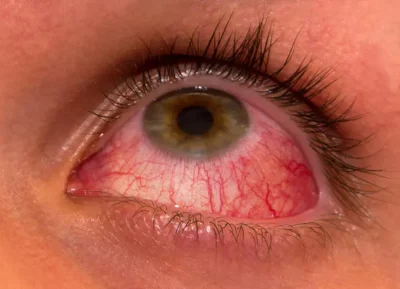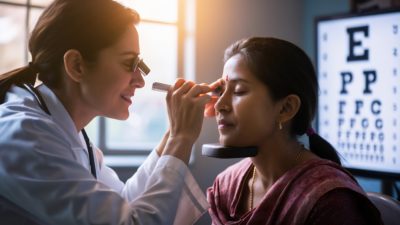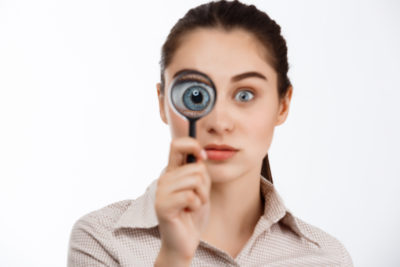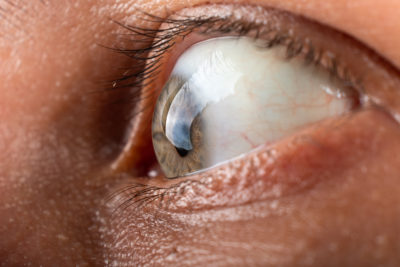Key Takeaways
- Alcohol can blur your vision by disrupting the tear film at the surface of the eye, producing halos in your vision at night.
- One study on night vision showed that alcohol had a less effect on vision if the breath alcohol content was below 0.25 mg/litre.
- Alcohol can also cause double vision and slow response of the pupils, a significant decrease in peripheral vision, and a reduction in contrast sensitivity.
- Heavy drinking and/or smoking can also cause tobacco-alcohol amblyopia, a vision condition that results in blindness and decreased color vision.
- Drink responsibly to maintain eye health, but more importantly, drink with food! Drink water in between alcoholic drinks.
We have all had that one crazy friend whose histrionics are the stuff that legends are made of. Their crazy capers give you enough anecdotes to regale your friends, spouse, kids and even grand-children, years later. Brian was one such guy. His friends loved to narrate one incidence where Brian kept arguing with the store keeper if there was a buy-one-get-one-free offer on the two bottles of mineral water that had been stuck together. It took a lot of cajoling from his friends and a strong rebuke from the shopkeeper… The embarrassing truth? A very drunk Brian was seeing double!
So why does alcohol cause blurred vision?
A study was conducted by the University of Grenada in Spain. Researchers say drinking alcohol disturbs the tear film that is present on the outer surface of our eyes. This increases the perception of halos at night. Thus, the alcohol that goes from our tummies to our blood stream, reaches our eyes, disturbs the outer (lipid) layer of our tear film and causes the evaporation of the water content (or aqueous part) of the tear film. In an eye which has a deteriorated tear film, a deteriorated-quality image is formed on the retina, the photosensitive layer at the back of the eye. When the breath alcohol content goes above 0.25 mg / litre (the legal limit for driving as recommended by WHO), this deterioration of night vision is much greater.
We all know how alcohol impairs one’s ability to quick reflexes, co-ordination, judgement and memory. This study now affirms how visibility at night can be adversely affected by alcohol. Seeing halos can make it difficult for drivers to see changing traffic signs or pedestrians who are crossing the road. Their vision could also get dazzled by the headlights of an oncoming truck or car.
How Does Alcohol affect our Eyes?
Apart from causing an increased perception of halos, alcohol also has other effects on our eye.
- Double Vision or Blurry Vision is caused due to weakened eye muscle coordination.
- Slow reactions of the pupil (the opening in the coloured part of the eye) means that our eyes cannot quickly adapt to the bright headlights of a car.
- Reduced Peripheral Vision has been proven as an after-effect of alcohol consumption. (This gives you the vision that a race horse with blinkers would experience!)
- Impaired Contrast Sensitivity means a reduced ability to differentiate between shades of grey. Wondering why that would be such an issue? It is this very ability that helps perceive an object (say a grey pen) from its background (a slightly darker grey desk). Decreased contrast sensitivity can make it difficult to drive in rainy or foggy weather conditions.
- Tobacco – Alcohol Amblyopia is what happens if you drink or smoke in excess. Also called Optic neuropathy, it causes reduced peripheral vision, painless vision loss and decreased colour vision.
How Can You Protect Your Eyes from Alcohol?
While consuming alcohol once in a while may not cause any permanent damage, just like everything else in life, moderation is the key. Here are some tips:
- Avoid drinking on an empty stomach.
- Make sure to drink water in between drinks.
- Try and limit yourself to one drink an hour. (one drink can mean a glass of wine or a can of beer or a single shot of hard liquor)
- Know your own limit and ensure that you stay within that limit.










